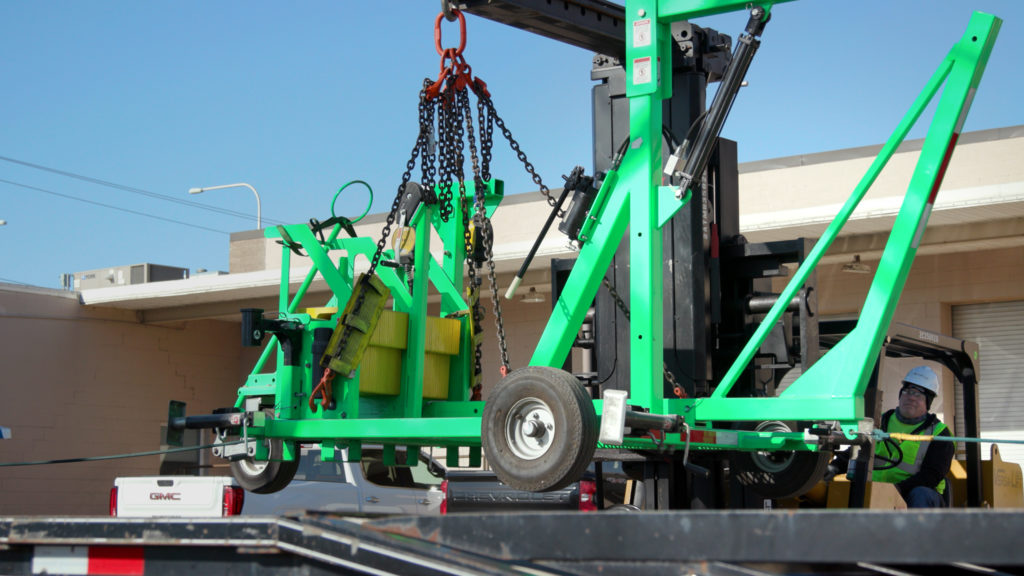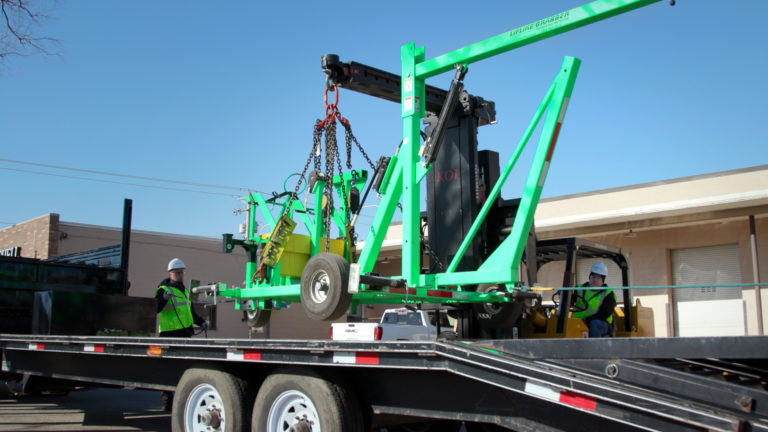What you need to know about moving equipment safely and efficiently
Blog Highlights
- When would you need to move machinery and equipment?
- How do you prepare for a machine move?
- What should you expect on the day of the machine move?
You might need to move large machines and equipment for any of a number of reasons.
- You’re upgrading to a bigger building.
- You’re replacing obsolete equipment.
- You’re getting a brand new system.
When the time comes to move machines, it takes meticulous planning to get it done right. Kroeschell is well-known as the go-to resource for machine moves.
“Equipment is a key part of any manufacturing or industrial organization’s success. That’s why we treat your machinery as if it were our own. From dismantling and removal to relocation and recommissioning, Kroeschell is the equipment installation partner you can count on,” Kroeschell machine moves.
While moving large machines is an enormous task, with the right procedure in place, it can be done well.
When would you need to move machinery?
Machine moves happen more often than you might think. Here are the six most common reasons for a machine move.
- Equipment Upgrade: Eventually, all equipment needs to be replaced. Once it becomes degraded or obsolete, it’s time to bring in new equipment.
- Reconfiguration: If your company has expanded or contracted, you might have reason to reconfigure your space to better accommodate your new level of operations.
- Removing Equipment: If you’re making a change with your equipment, you might sell the old equipment to make room for the change. This will require that the machinery be removed and shipped to the buyer.
- Relocation: Are you moving to a new location? That large machinery will likely need to go with you, and an expert will be required to oversee the transfer.
- Assisted Moving of Machinery: Some machinery comes with wheels, making it easier to move. But you may still need support to get the machinery to the right place.
- Repairs or Returns: Your machinery may need extensive repairs, and it must be removed for that to happen. Or your equipment may not be working properly, and you need to return or exchange it.
How do you prepare for a machine move?
An experienced machine move vendor will have a tested procedure to move your equipment the right way.
First, the machine move vendor will establish a plan. Top vendors will have a dedicated project manager to handle the entire process.

Next, the vendor will conduct a new site assessment. At this time, they will ensure that the new space is the right size and configuration for the equipment. They will complete a checklist to be sure the site meets electrical and mechanical, space, access, risk, and floor requirements.
After the assessment, the vendor will make a timeline and schedule. They will take into account:
- Travel time
- Plan B temporary storage in the event the relocation is delayed
- De-installation/removal of equipment
- Physical transportation of equipment
- Reinstallation of machinery
- Calibration
Next comes the day of the machine move.
WHAT SHOULD YOU EXPECT ON THE DAY OF A MACHINE MOVE?
On the day of the machine move, the hard part is already over. The strategy and planning happen in the preparation phase. Now it’s time to complete the project.
On the day of the move, you should expect the machine move team:
- To be on-site in case anything goes awry
- To complete one last equipment inspection with detailed documentation
- To decommission the machine, getting it ready to move
- To communicate any last-minute instructions
- To inventory the machinery and parts before it’s removed and after it arrives
Machine moves are complicated, but with the right vendor, your important equipment can be relocated seamlessly.


